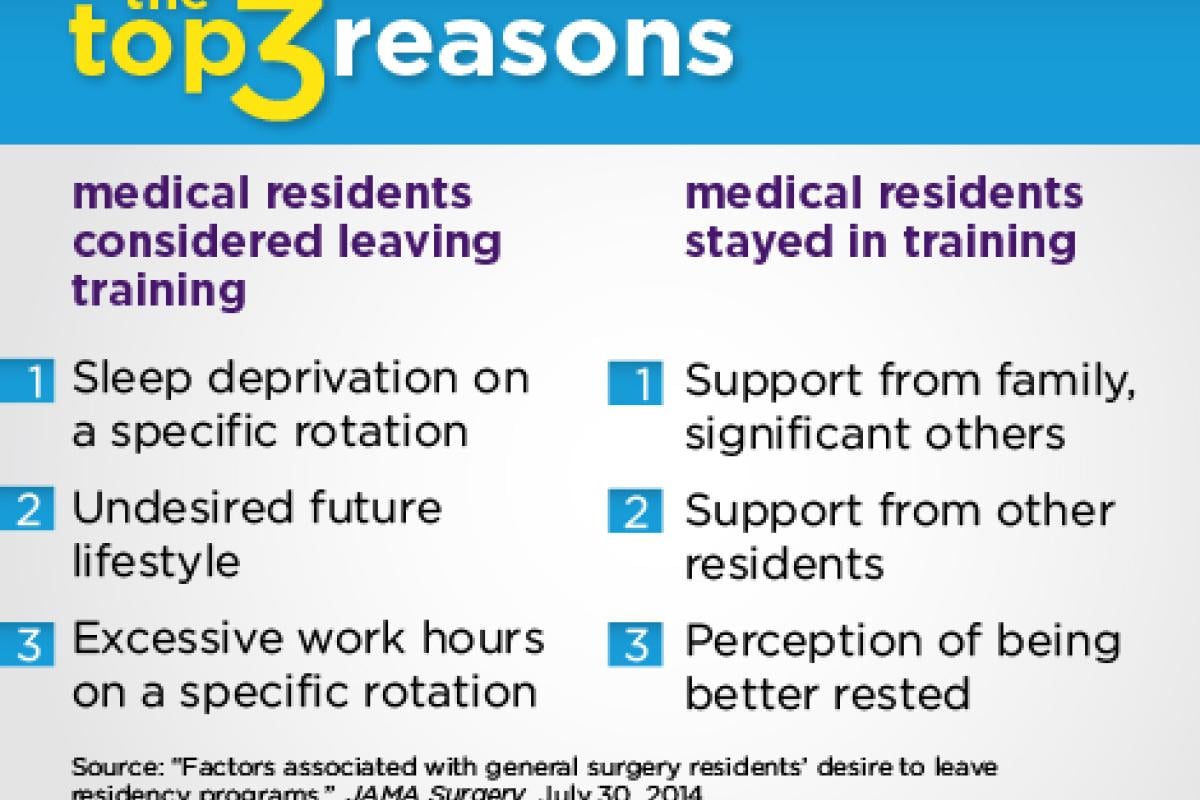 Why do some residents leave their residency? A new study published in JAMA Surgery found that more than half of general surgery residents have seriously considered leaving their training programs. The findings offer insight for graduate medical education programs and residents as they progress through their training.
Why do some residents leave their residency? A new study published in JAMA Surgery found that more than half of general surgery residents have seriously considered leaving their training programs. The findings offer insight for graduate medical education programs and residents as they progress through their training.
The study surveyed more than 300 residents and found the most frequent reasons for wanting to leave were sleep deprivation on a specific rotation, an undesirable future lifestyle and excessive work hours on a specific rotation. The top reasons residents ultimately decided to stay in training were support from family and significant others, support from other residents and the perception of being better rested.
The study did not find that work hours overall contributed to a desire to leave residency, which “may suggest that it is the workload of an individual rotation that residents find most stressful rather than the rigor of the entirety of general surgery,” the study said. It suggested that programs should identify high work-hour rotations and modify them.
Women were more likely than men to report wanting to leave their residency program, underscoring the importance of supporting female residents through the balance between motherhood and professional life, the study said. Women also were more likely to list the absence of a faculty mentor as a contributing factor for wanting to leave.
General surgery attrition rates are between 3 and 5 percent annually. “The training of surgical residents is a long and arduous process that necessitates an immense investment of time for the trainee and the faculty,” the study said. “As such, resident attrition is a tremendous loss for all involved parties.”
The findings, especially those that said an undesirable future lifestyle caused them to consider leaving residency, point to the difficult issue of work-home balance, the study said. Practicing surgeons continue to experience high levels of work-home conflicts and burnout. With support from family and significant others as a top reason residents decide to remain in their programs, it is clear that home life has a significant effect on work life.
As part of its Physician Satisfaction and Practice Sustainability initiative, the AMA is developing practice-level solutions to enhance the practice of medicine for physicians. While the AMA’s research into professional satisfaction is focused on workplace issues, the AMA Alliance works to support medical families and devise helpful resources for physicians’ family lives.
The AMA Alliance magazine, Physician Family, offers 10 tips for partners of medical residents.




